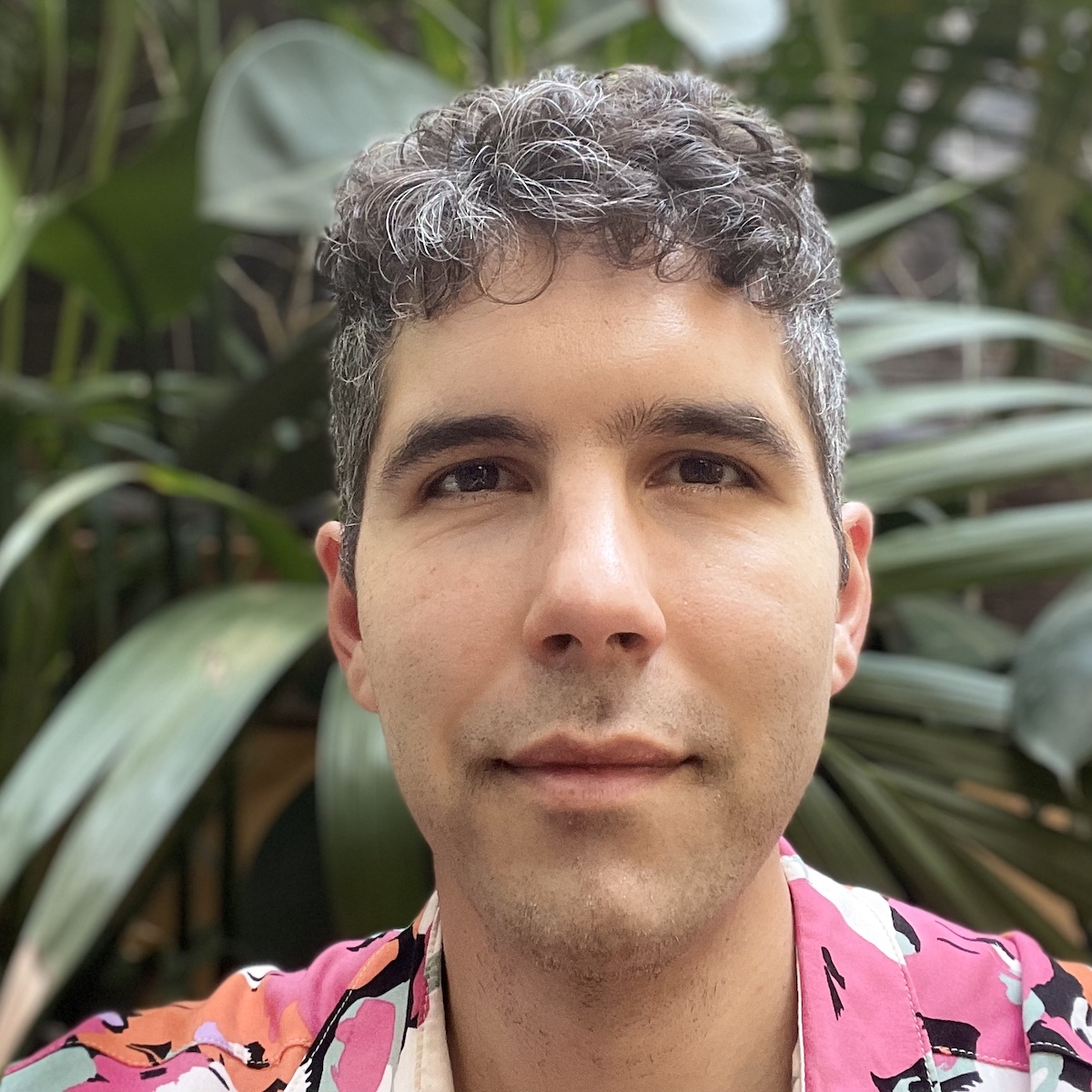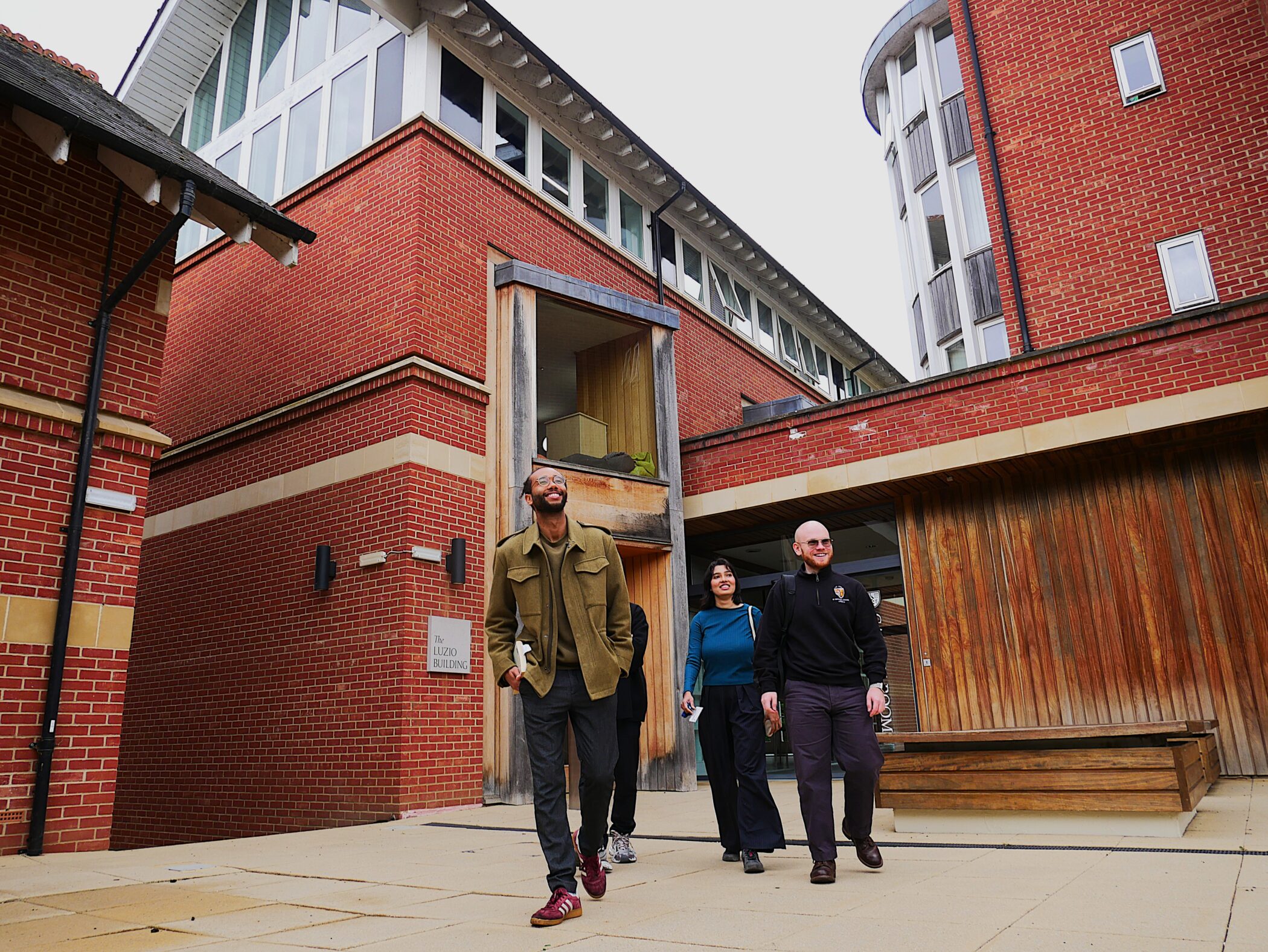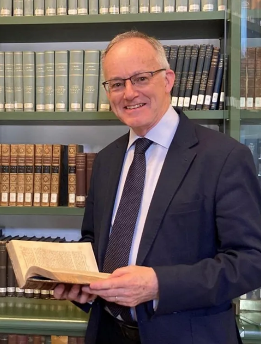Ahmed Kabil recently graduated from St Edmund’s College with a Master of Studies in Creative Writing. He tells us about his experience of studying the part-time programme, whilst living in Barcelona and working remotely for a non-profit organisation in San Francisco.
Can you tell us about your personal journey to Cambridge and what life for you looked like before you joined the University?
I was born in the US, a stone’s throw from the Texas/Mexico border to Egyptian immigrants. It’s among one of the poorest regions in the United States, and though I had it better than most, growing up there felt like dwelling on a distant planet, far from everything that I considered cool or exciting.
As an Arab American teenager coming of age in a post 9/11 world, I never quite felt like I belonged. I was performing very poorly at school and getting suspended. I was close to becoming a high-school drop-out.
Looking back at that point in time, from my vantage point now as a recent Cambridge graduate, there’s a feeling of ‘wow, how did that happen? How did it all turn around?’
Besides the unyielding support of my family, I had a mentor who came into my life at the time and taught me the value of prioritising my education. He introduced me to a whole world that existed beyond the small patch I’d known, and encouraged me to go out in search of it.
What motivated you to choose your field of study or career path, and how did your time at St Edmund’s College influence this decision?
I began my career in the digital humanities at Harvard and the start-up tech space in San Francisco, working with a group of scholars and media artists on the storytelling technologies that would ultimately become the stuff you see today on TikTok, Snapchat, and Instagram Stories. This was in the early 2010s, when it was easy to believe that the world would be vastly improved once these technologies proliferated and millions of people became storytellers.
I eventually cast aside the animated GIFs and short looping videos for the much more antiquated technology of pen and paper. My career pivot can perhaps be best summed up by something Joan Didion once said: ‘I write entirely to find out what I’m thinking, what I’m looking at, what I see and what it means.’ I felt like digital storytelling was limited to communicating what I was looking at and what I saw. Only writing could help me understand what it meant.
I did some freelance journalism, wrote a few essays, but always at the back of my mind was a desire to write a novel or memoir exploring my relationship to my Arab American identity. Turns out that was harder to pull off than a TikTok! After several false starts with the project, I applied to Cambridge’s part-time Master’s in Creative Writing. I was looking for mentorship, community, and world-class instruction in the craft of creative writing. I found all of this during my time at St Edmund’s College.
How is the degree structured?
The University offers a part-time master’s in creative writing, run through the Institute of Continuing Education (ICE) Institute of Continuing Education (ICE) | (cam.ac.uk) which is specifically designed for mature students like me.
It was a programme of study that would allow me to participate in the Cambridge experience to some degree – all students are members of a College, and regular residentials take place at Madingley Hall – whilst also not having to totally abandon my professional responsibilities or the life I had established in Spain. (I live with my wife and son in Barcelona and work remotely for a nonprofit in San Francisco.) It made a Cambridge education accessible.
In the first year, each residential was dedicated to a particular form of creative writing: poetry, writing for performance, non-fiction, and fiction. Students spent the entire second year working on a dissertation, which comprised an extended piece of creative work and a critical analysis of that work.
Were there any professors, mentors, or classmates who particularly inspired or influenced you during your time at St Edmund’s College? If so, how did they impact your personal or professional development?
I could not have asked for a better supervisor for my dissertation than Nina Ellis, a St Edmund’s College PhD candidate. She counselled me through moments of creative self-doubt and advised me in instances when the demands of the “real world” impinged on my studies. Most importantly, she believed in what I was trying to accomplish with my dissertation, bringing an infectious positivity to our supervisions — one that was grounded in actionable next steps to get the work to where it needed to be. She took a keen interest not only in my specific aims for the dissertation, but my larger aspirations as a writer as well.
Can you share a project, research endeavour or extracurricular activity that you were involved in during your time?
The creative portion of my dissertation was a hybrid memoir of my search for meaning, identity, and belonging as an Arab American coming of age in a post-9/11 world. It was somewhat experimental in its approach to form, structure, and language: it blended memoir with history, and the themes and techniques of the postmodern novel with the Homeric epic.
While the creative writing came relatively easy, the critical commentary on the work was challenging. I was daunted by the prospect of contextualising my writing with literary theory and situating my work within a larger tradition. (I hadn’t taken an English literature course since high school – which, as mentioned above, did not go so well.) But the process wound up being immensely rewarding. The resources at one’s disposal at Cambridge are astonishing; even during the stretches I worked on the project remotely, I was able to access countless databases and archives to find the exact journal article or book I needed to get the job done. It’s definitely something I’m mourning now that I am a graduate and no longer have such access.
How do you think your experience at Cambridge prepared you for the next stage of your professional or personal journey?
While I’m only beginning on this path, I’m happy to share that I’ve received some validation for my work in the outside world. I was shortlisted for the Cambridge University Poetry and Prose Prize and I won first place in the Cambridge Creatives Screenwriting competition. Outside of Cambridge, I was a winner of last year’s First Pages Prize for Creative Nonfiction for an excerpt from my dissertation.
Along the way, I helped launch a publication at my non-profit that features essays, interviews, fiction and poetry. The programme’s emphasis on experimenting across different forms of creative writing was instrumental in informing my approach.
My goal now is the same as it was when I entered Cambridge: to write the book that only I can write. My time here gave me the confidence to pursue that goal. I’ve left university with an in-progress manuscript and a network of writers, friends, and mentors with whom I’m in regular contact. But most of all, I have a clearer sense of what my story means.
What advice would you give someone thinking of applying to Cambridge?
Cambridge is what you make of it. There are endless opportunities to get involved, meet lifelong friends. To really immerse yourself in the community. You are at one of the premier institutions of higher learning in the world and those doors are all available for you once you step foot in here. Pursue those opportunities.





